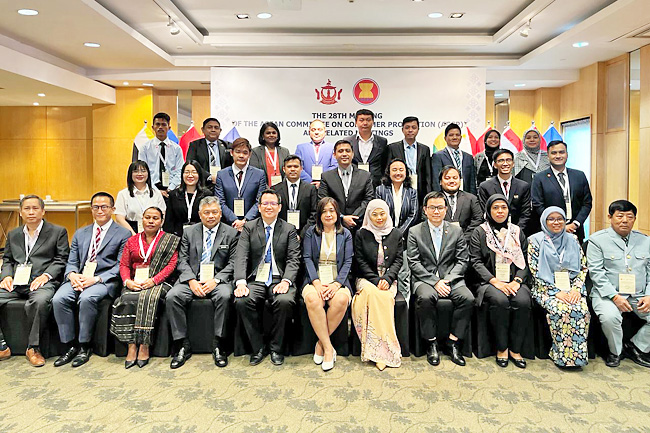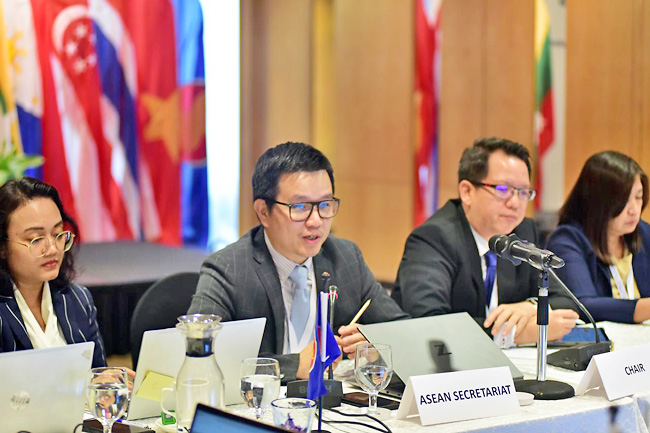Senior officials from consumer protection agencies in ASEAN member states are in a four-day meeting in the Sultanate to discuss developments and initiatives related to consumer protection in the region.
The 28th meeting ASEAN Committee of Consumer Protection (ACCP), hosted by the Department of Economic Planning and Statistics (JPES), began yesterday in Bandar Seri Begawan.
Representatives from the ASEAN Secretariat and observers from Timor-Leste are also attending.
According to the JPES, officials will discuss key initiatives and deliverables under the ASEAN Consumer Protection Stategic Action Plan 2025 and emerging consumer protection issues, including cross-border e-commerce and product safety.
JPES Acting Deputy Director General Heidi Farah binti Abdul Rahman expressed gratitude to the delegates for their collective commitment to strengthening the consumer protection regime, aiming to enhance confidence in the marketplace both domestically and across ASEAN borders.
“This ultimately paves the way for market expansion and increased trade opportunities,” she added.
Assistant Chief Executive of the Competition and Consumer Commission of Singapore (CCCS) Loke Shiu Meng chaired the meeting.
He stressed on the need to build robust consumer protection mechanisms, strengthen cross-border enforcement and cooperation, foster trust in the marketplace, and encourage businesses to adopt fair practices.
“These actions will support innovation, mutually beneficial interactions between consumers and businesses, and sustainable, inclusive growth throughout ASEAN,” he added.
On the sidelines, related meetings with ACCP’s development partners will discuss and update ASEAN member states on programmes and initiatives under the Consumer Affairs Programme, implemented in collaboration with the Australian and New Zealand competition and consumer commissions.
The ACCP meeting aims to implement and monitor regional cooperation for consumer protection within the ASEAN Economic Community.
Since 2007, the focus has been on ensuring each member state has consumer protection laws, improving consumer access to information, establishing redress mechanisms, and enhancing institutional capacity.






















































